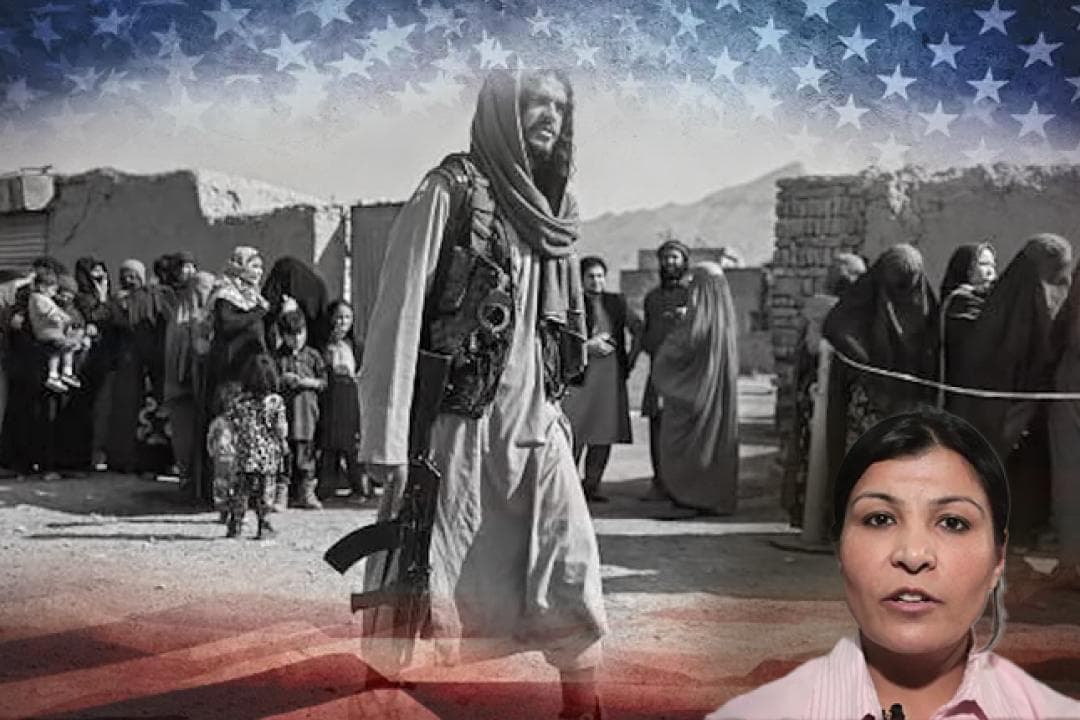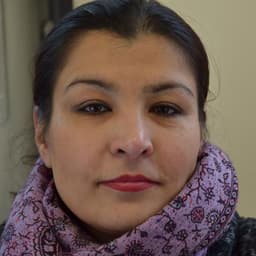How USA Destroyed the Afghan Republic
A look at the farce of the world’s oldest democracy vs commitment to peace of the world’s largest democracy

America has never been truly committed to democracy. It has instead mostly used democracy and human rights as a cover-up for its military interventions and many other political and intelligence gains it wants to make in certain regions or countries, for instance, Afghanistan. Unfortunately, what we've learned as Afghans in the past 20 years is that not only the US but also many Western countries aren't as supportive of democracy, human rights, and fundamental freedoms as they claim to be.
In the 1980s, the United States supported Afghan Mujahideen, whose actions mirrored those of the Taliban. Moreover, the Taliban themselves are a creation of the USA and Pakistan. The world can’t ignore the role that the US has played in supporting and harbouring those fundamentalist groups inside Afghanistan and outside Afghanistan.
For two decades, the USA deployed its military in Afghanistan, yet its intentions and goals remain unclear. Spending billions and sacrificing many lives, replacing the Taliban with the Taliban leaves us questioning their motives. As Afghans, we believe larger regional issues influenced the US's deliberate support for the Taliban's return, endangering Afghan lives.
Democracy cannot be established through bombs or rockets. It requires investments made in peaceful ways. It is disheartening to see that countries like the USA try to bring democracies into nations through war. What kind of democracy can be created on the foundation of wars, violence, and bombs?
A country can assist another in building democracy by helping them lay the foundations of a nation, with reconstruction and state building, and not with rockets, bombs, and tanks. India exemplified this as it supported Afghanistan in building democracy by building roads, hospitals, and the parliament house. This is how one nation supports another in adopting democracy, through investments and contributions to another's progress and development.
When I was a kid, my mother used to take me to Indira Gandhi Children's Hospital in Kabul. Indian doctors were posted at the hospital to provide the best care to the patients. This is how one country can help another in bringing democracy to a nation, and not through violence and bombs.
Afghanistan shares a strong bond with India, often looking to it as a guiding light. Afghans have always admired India as one of the greatest democracies. Its multiculturalism and tolerance, in addition to having had a Muslim President and ministers, reflect the strength of its democratic foundations. As a journalist, I’ve grown up watching the strength and dynamism of Indian Media, the fourth pillar of democracy. I've marvelled at how Indian journalists fearlessly expose truths, despite the risks they face. Their bravery has served as a constant inspiration to me, showcasing the power of the media to challenge authority and uphold truth.
Vibrant media and active civil society, especially women's groups fighting for rights, are crucial in advocating for minority rights, freedom of expression, and political pluralism in a country. In Afghanistan, we've always admired India as one of the greatest democracies. I hope India continues to uphold its values, with strong media, journalism, civil society, and human rights movements. Political challenges and politicians may come and go, but the system shouldn't compromise fundamental values for those in power.
Recently at Heathrow Airport, I met Mr. Zalmay Khalilzad, who served as the United States’ special envoy for Afghanistan, leading the peace process and negotiating with the Taliban. In February 2020, he signed an agreement on behalf of the US government with the Taliban. During our conversation, I confronted him about his role in facilitating the return of the Taliban and whether he regretted the current situation in Afghanistan, especially concerning Afghan women and girls.
It is well known that during the negotiation years, Mr. Khalilzad kept asserting that the Taliban had changed. He sold the idea to Afghanistan and the international community that the Taliban was not the same as it was in the 1990s and now respected women's rights and would not disturb Afghans' freedom. He emphasised the importance of political processes and dialogue with the Taliban. Still, his actions played a significant role in creating a situation that led to the Taliban taking over the Afghan Republic. To my questions, Mr Khalilzad admitted to not expecting the situation to unfold as it did and expressed dissatisfaction, particularly regarding the plight of women and girls in Afghanistan. However, he refused to apologise to the Afghan women, suggesting that Afghan politicians should take responsibility instead.
The recent report of Special Inspector General for Afghanistan Reconstruction (SIGAR) revealed that the United States has provided over 17 billion dollars to the Taliban in less than three years. Additionally, they give over 50 million dollars in cash to the Taliban weekly under the guise of humanitarian aid. Despite this substantial funding, Afghanistan continues to face a worsening humanitarian crisis, with increasing suffering and food insecurity. The amount given to the Taliban surpasses what Afghanistan received before their return, raising questions about the true intentions behind this aid.
India has long been seen as a democratic role model globally. However, since the Taliban's resurgence, there has been a surprising shift in the policies of countries like India, Russia, and many Central Asian nations, which were previously unsupportive of the Taliban. These countries are now establishing diplomatic ties with the Taliban, raising concerns. India, known for its democracy, is engaging with the Taliban diplomatically, which is perplexing. The forced closure of the Afghanistan embassy by the Indian Ministry of Foreign Affairs adds to the unease. This shift in international relations regarding the Taliban worries me, especially regarding its implications for Afghanistan and its women. Under the Taliban, Afghanistan faces a gender apartheid regime and severe human rights violations, making it challenging to comprehend support from any country or individual advocating for fundamental freedoms and humanity.
There's an international shift occurring as well. Many Western countries are contradicting the values they claim to uphold. One can look at the international responses to situations in Gaza and Afghanistan. In 2022 at the European Parliament, I questioned the visa process, which requires confirming no involvement in terrorism or war crimes. Yet, countries like Norway invite Taliban delegates, despite their suspected war crimes and their being on the blacklist of the United Nations for terrorism. It shows the double standards of the western countries. They often use the terms democracy and human rights when it benefits them, rather than prioritising the interests of others. This has been the case for a while. However, recent events in Afghanistan, Ukraine, and Palestine are making these double standards more apparent. People are starting to see the true intentions of Western countries and politicians.
The United States recently tried to question the state of democracy in India. But not only the United States but many Western countries lack the moral authority to question other countries about their democracy. This is because we have seen their true colours, such as what's happening with the encampments of students across the US who are staging protests in support of Gaza and Palestine. Another example is the UK, where the government is ignoring thousands of Afghans who supported their troops and presence in Afghanistan. Now, these Afghans are facing death at the hands of the Taliban, but the government has done nothing to bring their own allies, supporters, staff, and employees to the UK. They left them at the mercy of the Taliban.
When these countries try to become the police of democracy or if they want to hold other countries accountable for their human rights record or democracy, they should first look at themselves. They should first look at how much they have done to promote and protect democracy and democratic values in the world and in their own societies. It is essential and crucial that countries such as the United States, the UK government, European politicians, and many other Western countries must first restore democracy and human rights to their societies before they can police others.
Of course, India will not listen to the United States as long as the state of human rights and democracy in the United States is below the international standard.

Horia Mosadiq 🇬🇧
Deep Dive
West-made Crisis: According to UNAMA, over 23 million Afghans in dire need of humanitarian aid in 2024
Need Intervention: The situation for women in Afghanistan has immensely worsened since 2021
Historical Help: India helped Afghanistan Republic in building infrastructure and democracy
Continued Commitment: India continues to coordinate humanitarian assistance in Afghanistan


































